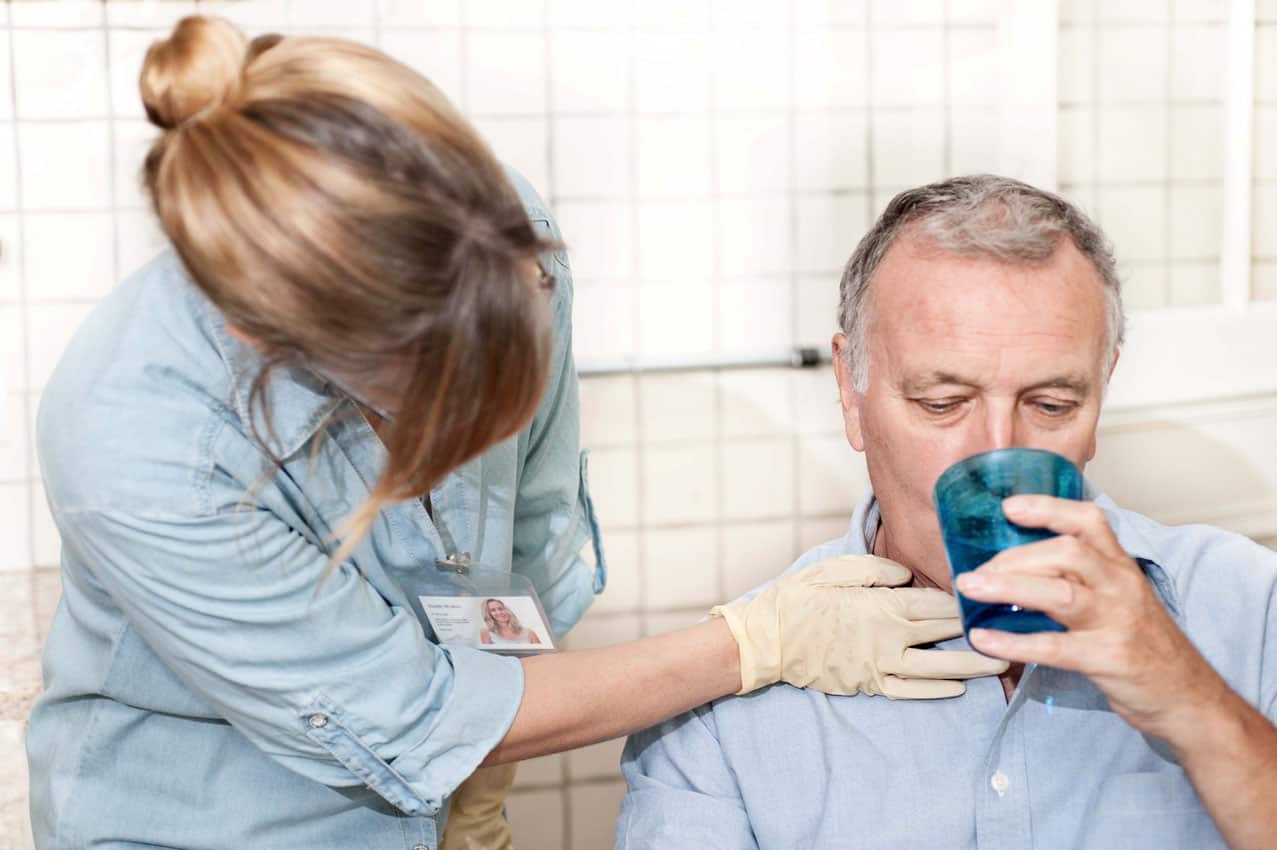Swallowing therapy is important if you have difficulty swallowing while eating or drinking. Problems with swallowing can occur as we age or can result from certain illnesses and injuries—such as Parkinson’s disease, multiple sclerosis, cancer, stroke, or brain injury.
General signs of a swallowing disorder (called dysphagia) may include:
 Coughing or a gurgled sound in your voice during or after eating or drinking
Coughing or a gurgled sound in your voice during or after eating or drinking- Extra effort or time needed to chew or swallow
- Food or liquid leaking from your mouth or getting stuck in your mouth
- Sensation of food sticking in your throat or chest
- Recurring chest congestion after eating or recurring pneumonias.
- Weight loss or dehydration from not being able to eat or drink enough
At Kingman Regional Medical Center (KRMC), our certified speech-language pathologist specializes in evaluating and treating individuals with swallowing disorders. If you are experiencing problems with swallowing, it is important to talk with your doctor. If necessary, your doctor will refer you for testing and treatment with KRMC’s speech-language pathologist.
Testing
KRMC’s speech-language pathologist provides comprehensive clinical examinations to evaluate muscles and other structures involved with swallowing. The pathologist will observe you eating and drinking to determine if further testing or treatment may be of benefit. Further instrumental testing can include:
- Motion Fluoroscopic Evaluation of Swallowing Study.You swallow barium-coated foods of different consistencies or you may swallow several thicknesses of liquids. This test provides an image of these foods as they travel through your mouth and down your throat. The images may show problems in the coordination of your mouth and throat muscles when you swallow and determine whether food or liquid is going into your breathing tube.
- Fiber-optic endoscopic evaluation of swallowing (FEES). A thin, flexible lighted instrument (endoscope) attached to a camera is passed through your nose to view your swallowing ability.
Treatment
Depending on the cause, symptoms, and type of swallowing problem, we develop an individualized treatment plan aimed at improving your specific condition. During treatment, you will work one-on-one work with KRMC’s speech–language pathologist, who may recommend special therapeutic exercises and focused training to improve your ability to safely swallow.
Treatments for your swallowing disorder may include:
- Exercises to improve muscle movement in your mouth and throat
- Neuromuscular electrical stimulation, which helps restore swallowing function and strength using low electrical current combined with traditional swallowing exercises
- Changes in your posture, behavior, or oral movement during eating and drinking
- Recommendations for specific foods and liquids that are easier and safer to swallow

